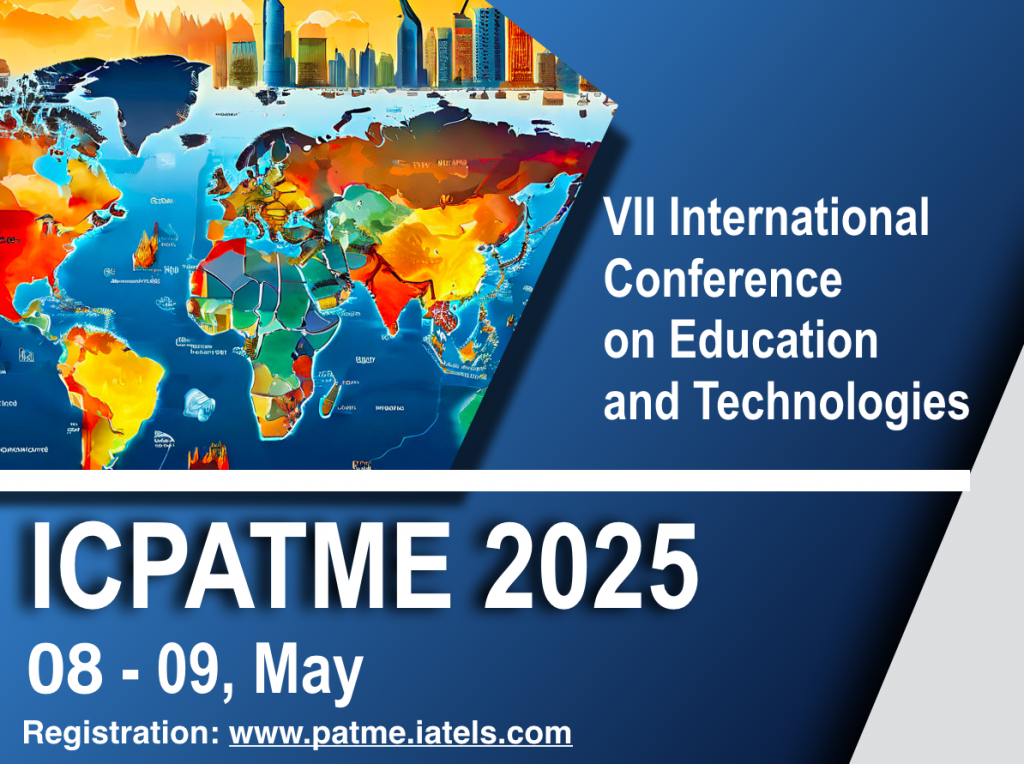VII ICPATME Conference was organised in collaboration with the academicians from Curtin University (Perth, Australia).


The conference was attended by the speakers and listeners from Australia, Turkey, Netherlands, Jordan, Malaysia and India.
The conference was held online in a very productive mode with the participants presenting and discussing cutting-edge studies on AI, related methodologies, STEAM, attitudes towards AI in learning and research, main strategies of using AI by students, policies concerning AI in different countries, quality of education and assessment.
The conference was opened by Dr. Tomayess Issa (Curtin University, Australia).
She introduced the topic of the conference and made a brief overview of the main trends of the university’s activities in education and research.
The plenary session, chaired by Dr. Mahnaz Hall (Curtin University, Australia), continued with the speech by Prof. Dr. Iryna Sekret (Turkey).
She highlighted the priorities in organisational activities of IATELS for collaboration, education and research and introduced the concept of ICPATME Conference.
Prof. Dr. Iryna Sekret also noted how the conference concept has been changing through the years of organising the conference since 2018 concerning its main topics, modes of organisation, partnerships and research interests globally.
The keynote speech presented by Prof. Dr. Piet Kommers (Netherlands) provided insights into the transformations of the concept of education at all levels due to the introduction of AI and a necessity to rethink the educational approach towards a problem-solving learning based on the principles of STEAM.
The speeches presented at the conference concerned crucial points of developing business frameworks with AI (Dr. Rohini Balapumi, Curtin University, Perth, Australia), implementation of AI for business green models and sustainability (Mahnaz Jafari, Curtin University, Perth, Australia).
A research group from India – Arindam Mondal, Prof. Dr. Phalgu Niranjana and Assoc. Prof. Smaraki Pattanayak (School of Business, ASBM University, Bhubaneswar) discussed the notion of implementing AI in education, perspectives and challenges concerning the educational policies, ethical issues, challenges and points for improvement.
The conference session chaired by Dr. Rohini Balapumi (Curtin University, Perth, Australia ) embraced the case studies conducted in Jordan (Assoc. Prof. Dr. Bilal, Abu-Salih, The University of Jordan, Amman, Jordan), Australia and Pakistan (the studies supervised by Dr. Tomayess Issa), Malaysia (Dr. Aidrina Sofiadin, International Islamic University Malaysia, Kuala Lumpur, Malaysia), Ukraine (Prof. Dr. Iryna Sekret, STARTINFORUM).
Thus, in her presentation Dr. Aidrina Sofiadin (International Islamic University Malaysia, Kuala Lumpur, Malaysia) discussed opportunities provided by AI, virtual models of learning and 3D models for training students in medicine, engineering and other fields.
Without entering real operational halls, production areas and engineering settings, the students can learn about those processes participating in the virtual learning models.
According to the researcher, such learning practices help to enhance the quality of education and prepare students for real working conditions and professional challenges.
Dr. Tomayess Issa in her presentations was stressing the importance of formative feedback for boosting students’ learning performance and better outcomes.
According to the data provided in her studies, effective formative feedback is a key to a better guidance, deeper learning and in fact leaving no place for ChatGPT or other AI technologies which students often refer to when they have difficulties with their tasks and assigments.
The students’ attitudes towards AI, the policies on using AI in schools and universities of Ukraine were discussed by Prof. Dr. Iryna Sekret (STARTINFORUM, Turkey).
She highlighted the main recommendations for selecting and evaluating AI, strategies of using AI at the institutional level and at the level of an individual teacher issued by the Ministry of Ukraine. She also shared insights into the main practices of using AI by the students in Ukraine.
Her presentation also involved the conference participants in the questionnaire on their views, experiences and believes about AI in research and education revealing their personal attitudes to AI and the level of their trust into the reliability of AI technologies and namely ChatGPT for research and education.
The conference discussions were summed up at the Round Table discussions in the end of the conference day.
The leaders and participants of the Round Table highlighted the main tendencies of using AI and its status in education and learning internationally and drew out the plans for the conference publications.
As it was announced in the preliminary plans, the conference is going to be finalised with three publication plans including the Book of Abstracts with ISBN number in PDF format and as a paper back book, Book of the Conference Proceedings with ISBN number to be forwarded for evaluation and indexing in Web of Science and a thematic monograph plan to be developed for publishing by Springer as a Monograph collecting selected thematic studies on AI in Education and Learning.
As the conference organising committee, we would like to thank all our partners, participants and supporters for their contribution to this conference organisation and making it an international academic community with a highly qualitative research profile and educational visions.
We hope that our next meetings will bring even more fruitful discussions ahead and become a basis for highly enhanced collaborative frameworks for education and research in AI and other technologies.
Looking forward to our meetings in 2026!